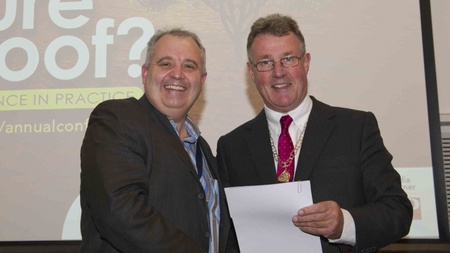Melanoma sufferers who receive their first treatment from a GP are no worse off than patients referred directly to hospital, according award-winning research from the University of Aberdeen.
The academics behind the study say that adopting this practice could lead to quicker diagnoses and result in a better system for patients and the NHS.
The study won the Royal College of General Practitioners (RCGP) cancer research paper of the year award.
“Currently, in the UK, when a GP thinks a patient may have a melanoma skin cancer they are supposed to refer them straight to hospital,” explains lead author, Dr Peter Murchie. “GPs are discouraged from treating them first with minor surgery because melanoma is so difficult to diagnose.
“However, up to 20% of people diagnosed with melanoma in the UK end up receiving their first treatment from a GP. This happens because a GP may not realise the patient has skin cancer, as it is so difficult to diagnose. This is usually viewed by specialists as wrong, despite there being no good evidence that GPs are less able to deliver this treatment.
“In contrast, preliminary treatment by a GP is the norm for treating melanoma in Australia, where the condition is much more common.
“We conducted this research to discover if people from North East Scotland who had their first operation for melanoma carried out by their GP were worse off as a result.”
The study looked at information from around 1,200 people diagnosed with melanoma in North East Scotland between 1991 and 2007. It found that around 20% of them received their first melanoma treatment from their GP.
Dr Murchie added: “We found no evidence that people who had their first treatment for melanoma from a GP were more likely to die than those who had their first treatment in hospital. There was also no evidence that receiving initial melanoma treatment from a GP caused people to have more subsequent ill-health.
“Therefore, if GPs are encouraged to initially treat people with melanoma it’s possible they could be diagnosed more quickly, resulting in a better system for patients and the NHS.”
The paper was co-authored by Dr Amanda Lee, Dr Neil Campbell and Dr Edwin Amalraj Raja.


